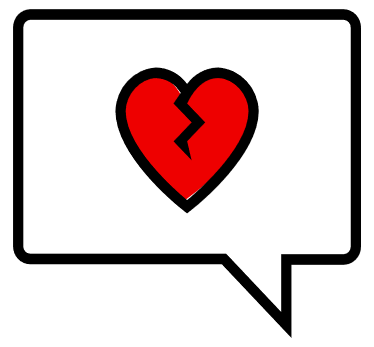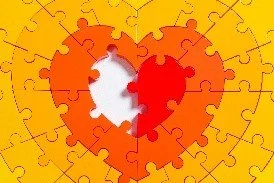Building Healthy Relationships
October is Relationship Violence month, and it may surprise folks to know I don’t want the main focus of this article to be on warning signs and dynamics of how unhealthy relationships can develop. I am not necessarily saying there is no value in learning about warning signs and red flags. It’s just that if that’s all we focus on (and I feel like we typically do), it doesn’t necessarily leave us in a great place. There are lots of people that aren’t necessarily in an abuse relationship but are still unhappy. I think there is great value in us spending more time on what makes relationships healthy.
Relationship Bill of Rights
One of the things that I go over in classrooms is something called The Relationship Bill of Rights. If you put “relationship bill of rights” into a search engine you will be able to find a variety of lists. Most of these lists include things like being treated with dignity and respect, being able to say no, feeling safe, and taking time for yourself and to be with friends.
One thing I like to include is that while each person has these rights, we have a responsibility to acknowledge that the other person’s rights are respected as well. Your partner(s) have the same rights as you do. In healthy relationships both/all the people involved are concerned about their rights AND their responsibilities.
In unhealthy relationships there is a significant power imbalance where the person who has the power is very focused on what they are entitled to as opposed to what their responsibilities are to the other person(s). Their partner(s) end up being overly focused on their responsibilities to the other person(s) without realizing that they also have the same rights.
What Does a Healthy Relationship Look Like?
As mentioned earlier, in a healthy relationship, everyone is focused on both their rights and their responsibilities in that relationship. The relationship should be mutually beneficial and balanced.
If one person inherently has more power or status, they try to even the playing field, not exploit it.
Here are some characteristics of healthy relationships listed from Virginia State’s webpage:
Partners in the relationship value each other’s opinions
Disagreement can happen and neither partner tries to control or change the other’s opinion
Neither partner(s) makes the other feel guilty or manipulates them when they are told “no”
Partners accept responsibility for themselves, and mistakes are accepted and learned from
Boundaries are established and respected
Other characteristics listed on their webpage include support, trust and honesty, healthy communication, autonomy, and fairness and equality. They also gives their version of a Relationship Bill of Rights. You can check out their webpage at www.vsu.edu/advocates/healthy-relationships.php or scan the QR code.
We Need to Talk About Healthy Breakups
One thing I think is missing in our conversations is how to know when it’s not working and break up in a respectful way. Yes, even in healthy relationships people may break up. People might not have anything inherently wrong with them. They may just have non-negotiable differences.
There is a myth that people who care about each other will stay together no matter what. This belief tends to lead to inherently unhealthy relationships. If in an effort to “make it work,” a person feels like they have to compromise their core values or sense of self-worth, the relationship will not be healthy. On that same note, different side, if in an effort to “make it work” a person tries to pressure or force another person to change, they are sliding into controlling and abusive behavior. In both cases, relationship rights are violated.
You may both feel attracted to each other, but if you truly respect and care about the other person, you don’t try to change them or control them to feel comfortable in the relationship. If you do, you risk sliding into behavior that harms or abuses the person you claim to love.
Please Get Help If You Need It
If you are in an unhealthy or abusive relationship (or wonder if you are) and want help, please call the YWCA’s hotline at (607) 756-6363. Their program, Aid to Victims of Violence, provides comprehensive services to people experiencing relationship or sexual violence.
What do you think?
So, enough about what I think! I would love to learn what you think! Are there things you disagree with? What resonates for you? What do you think makes a relationship healthy or not? Email me at wramsay@familycs.org and I will include your responses next month.






